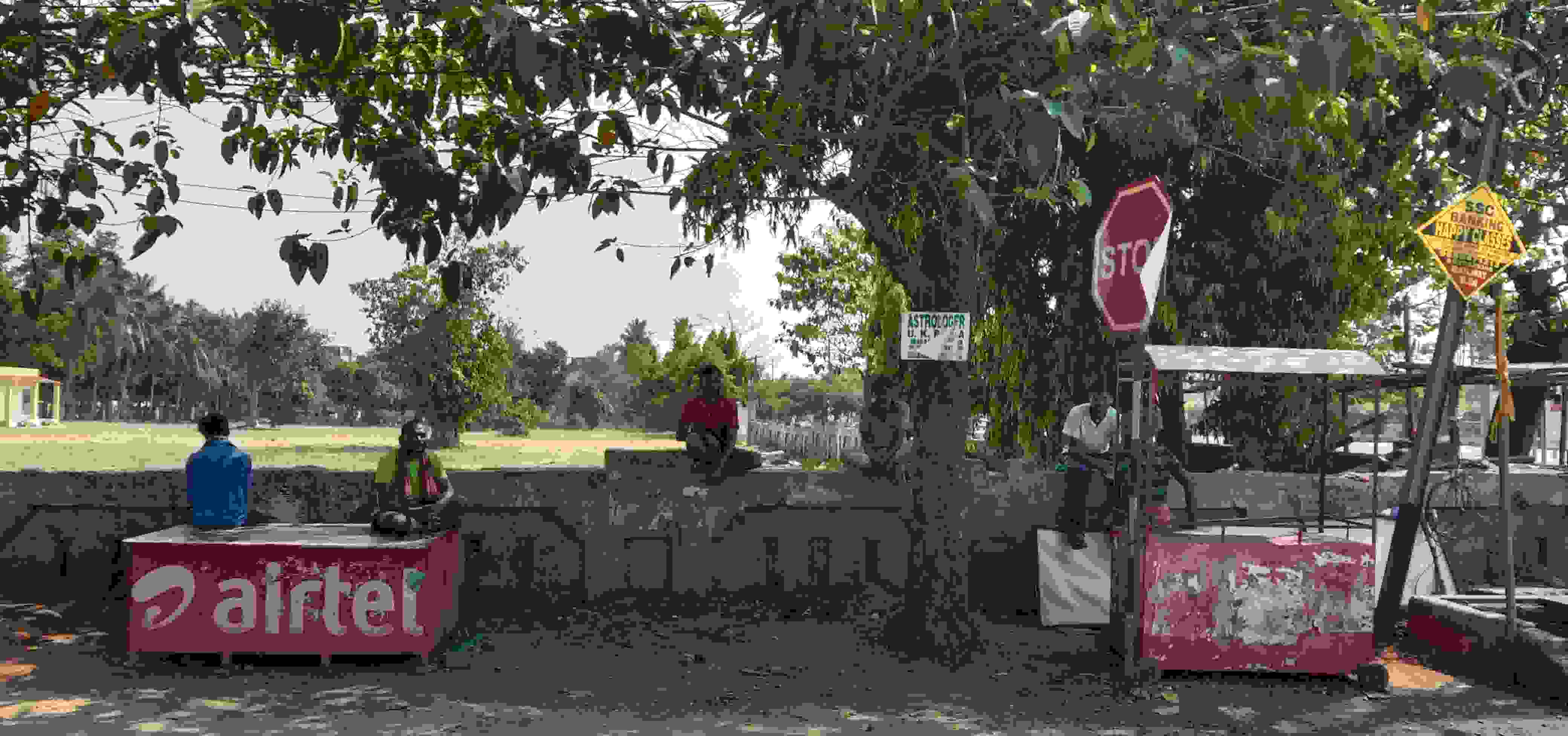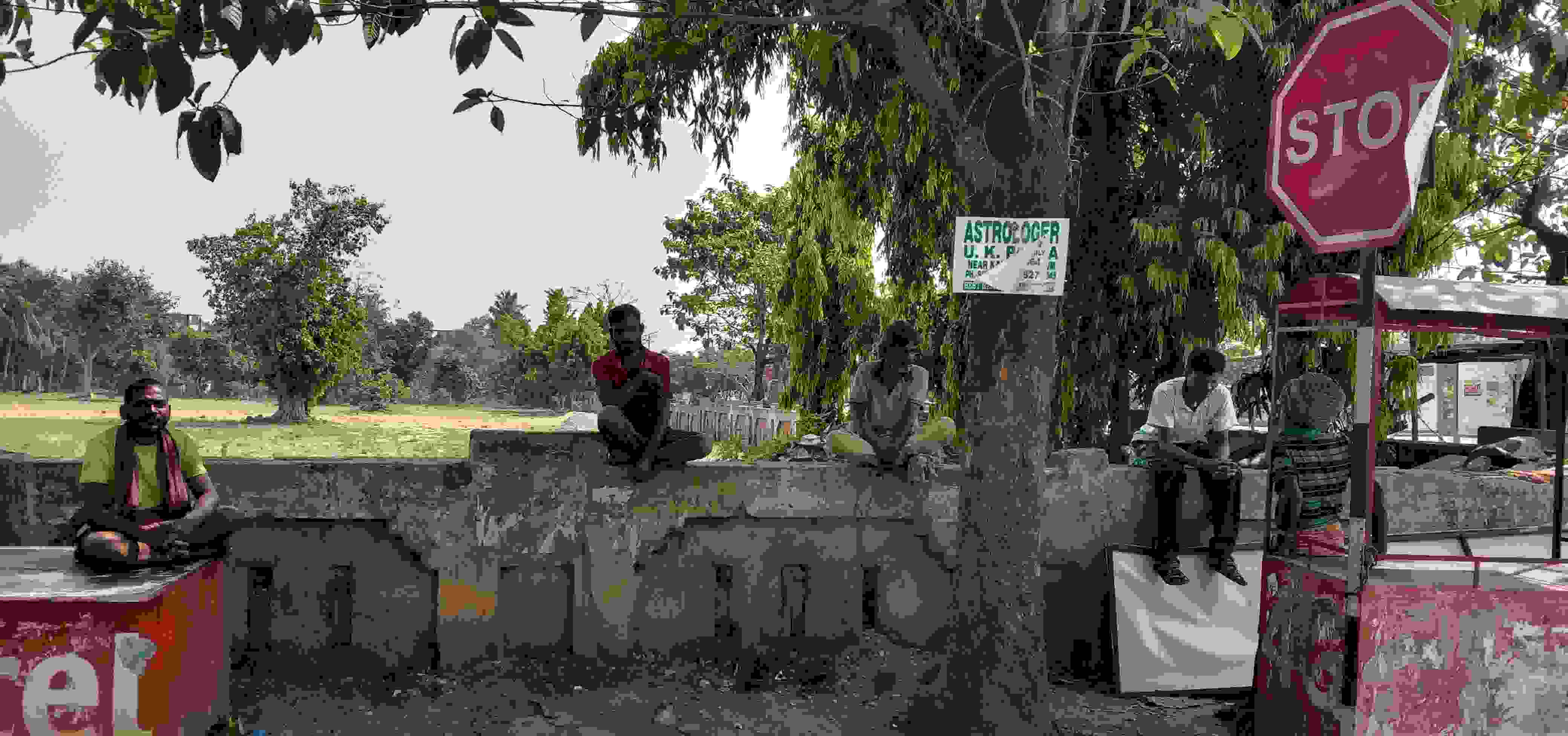If God Saves, Who Can Kill; If God Kills, Who Can Save!

“Why have you ventured out of home despite the request by the Prime Minister to stay home for 21 days in wake of the treat of Coronavirus?” I asked six daily labourers who had gathered on Thursday morning at Crown Hotel Chowk in Bhubaneswar, Odisha, expecting that someone may need their labour. “We stay here only,” they answered. “What you mean by here only? You may be staying in the nearby slum,” I exclaimed. “No, we do not have a house here. We sleep on the streets!”
My goodness! I had completely forgotten about the homeless people amid the overwhelming slogan of “Stay home, stay safe!”
While everyone is vulnerable in these testing times, these homeless people are doubly vulnerable. They are vulnerable to the disease, as they have no place to stay in the city. The tiny numbers of night-shelters are hardly functional. They also lose out on their income due to the lockdown. With the Aahar centres closing down and restaurants shut, they are vulnerable to hunger too!
There are some pockets in Bhubaneswar, including the Crown Hotel Chowk, where the daily labourers gather and offer their labour – be it for construction, offloading and unloading work or any other work – for a price. It’s an informal arrangement where people come looking for labourers. There is no fixed wage; all depends on negotiations between the parties. In Crown Hotel Chowk, one may see the gathering of 500 to 600 people on a normal day. A day after the March 22 Janata Curfew, when the lockdown was still prevailing, there were about 40 labourers. And today, there were only a few.
While the people on the street had no choice, I wondered why some people from slums are still coming out. “Do you not fear for your life from Corona?” I asked Bibhuti Patra (name changed on request), who lives in a nearby slum but came to seek work despite the lockdown. His answer baffled me. He cited an Odia adage, “Rakhe Hari Mare Kie, Mare Hari, Rakhe Kie!” (If God saves, who can kill? if God kills, who can save!). “We are poor people. The day we stop working, we will sleep in hunger. The fear of this new disease is no different for us. We are dying everyday!”
The Odisha government has ordered for home delivery of three months advance ration and pension, e.g. old-age, widow etc for eligible beneficiaries. These are steps in the right direction. In some areas in the state, the ration distribution has already begun.

“But we will lose about Rs 7000 seven to Rs 10,000 in these three weeks of lockdown. We request the government for monetary help to compensate for the loss of our income,” urged a labourer.
Another group is domestic workers. Most of the women living in the slums provide domestic help to the middle-class houses nearby. This has come to a halt. The public authorities have reached out to the people living in the slums and have requested them to not go for work. They have assured of timely delivery of ration. For this category of people, the deal is “no work, no pay”. The employers will hardly give them payment for the days they will miss work during the lockdown.
The beggars, who used to meet their ends by sitting in front of the temple, have suddenly become penniless, as gatherings at religious places have been suspended.
Similarly, a large number of unorganized workers working in small outlets, street vendors, sex workers, rickshaw pullers and such low-income group people have lost their jobs for now. They are already facing or will be facing severity in life in coming days due to the loss of income. Many such people living in the cities are migrants from rural areas, and some of them do not even possess a ration card in the city they live in. Their families back in villages may be having one.
Five kilograms of rice per month under the public distribution system (PDS) for people is not enough when people have zero income. “Three months ration should be considered as relief to the people in this situation. From next month, the government should distribute their regular monthly ration after the lockdown,’ opines Rajkishor Mishra, former Supreme Court Advisor on Food Rights. The government should actively consider a compensatory financial package to the poorest category for the loss of their income.
[The author is a senior journalist. He can be contacted via 2006pradeep@gmail.com]

Comments are closed.